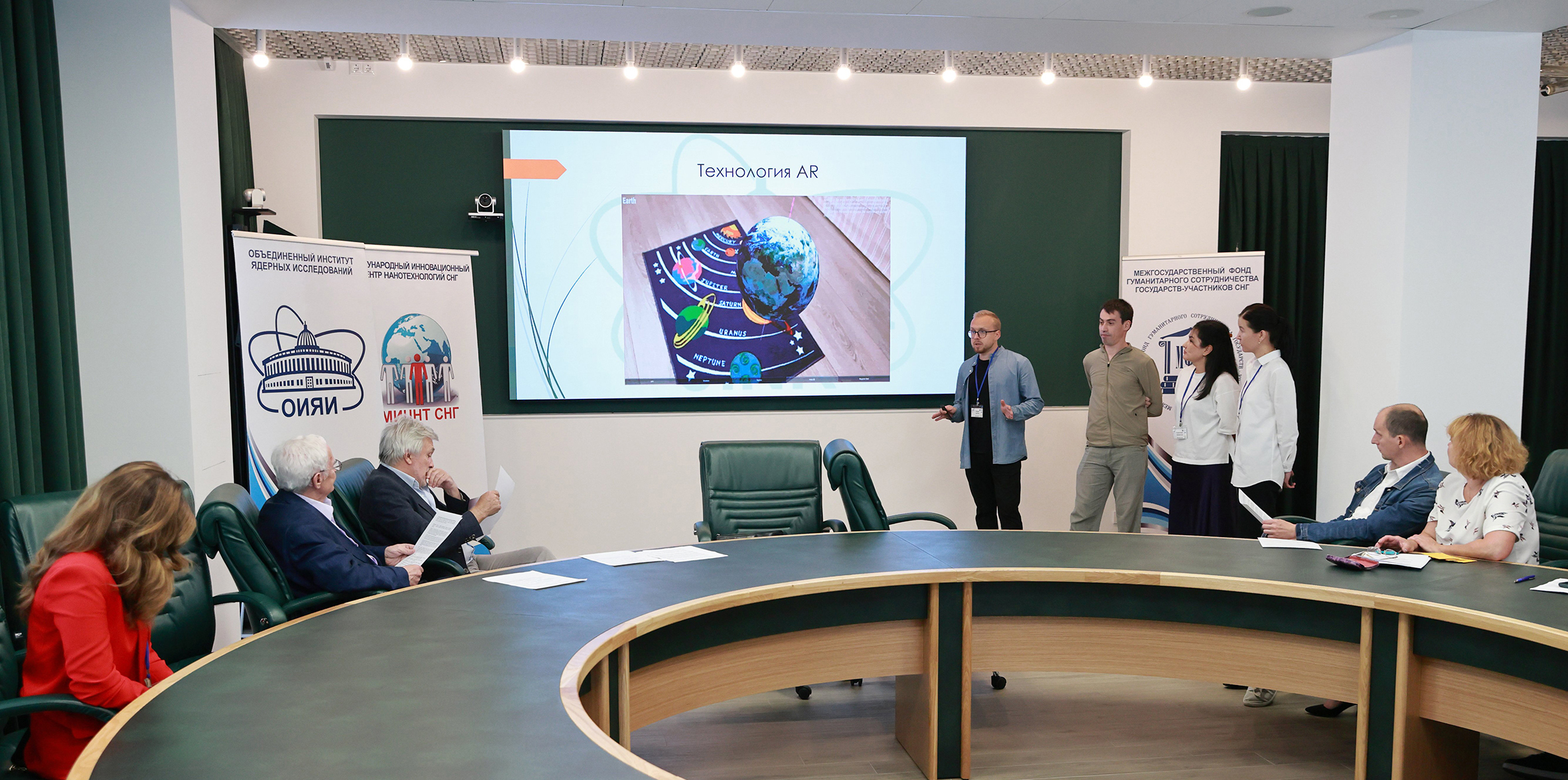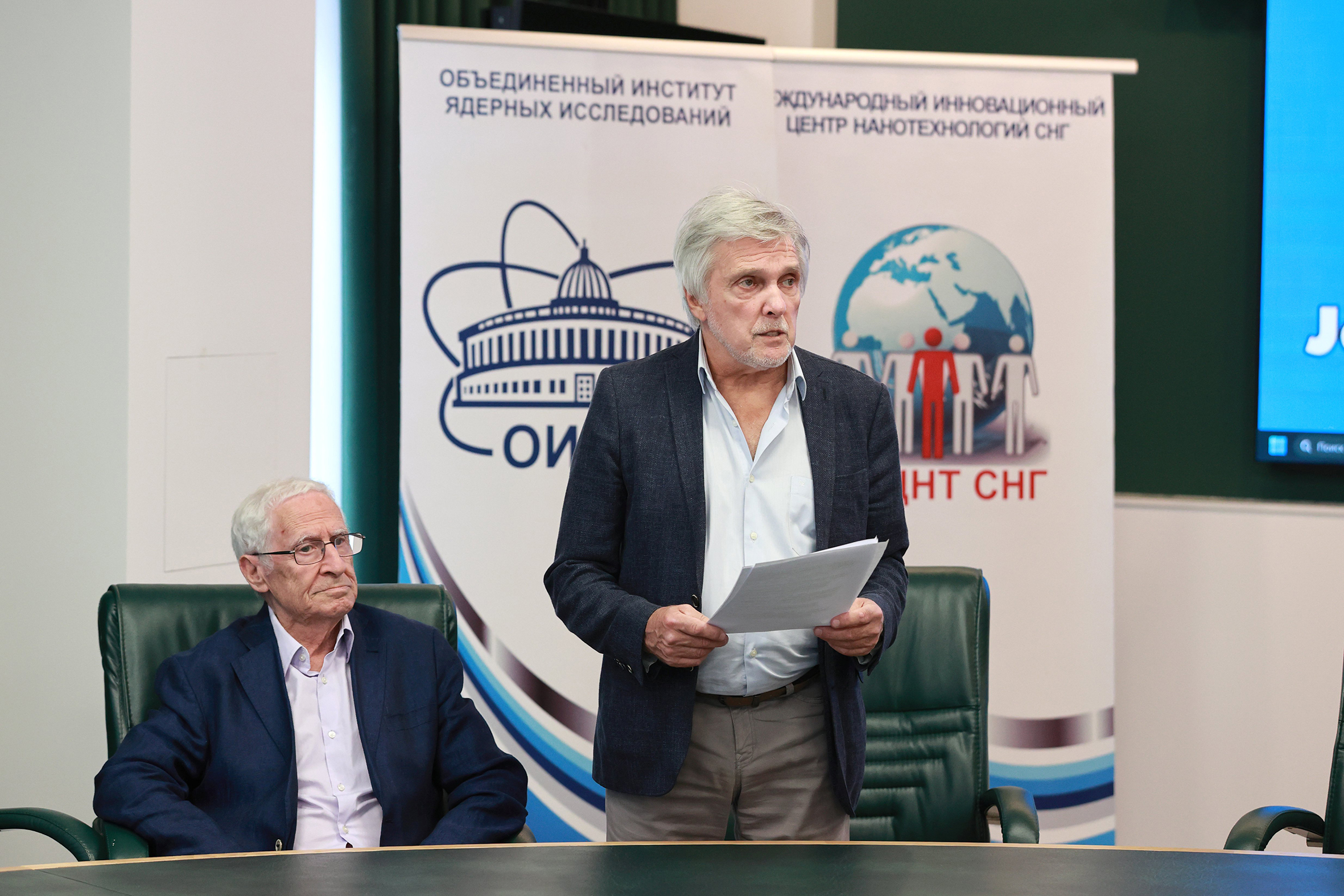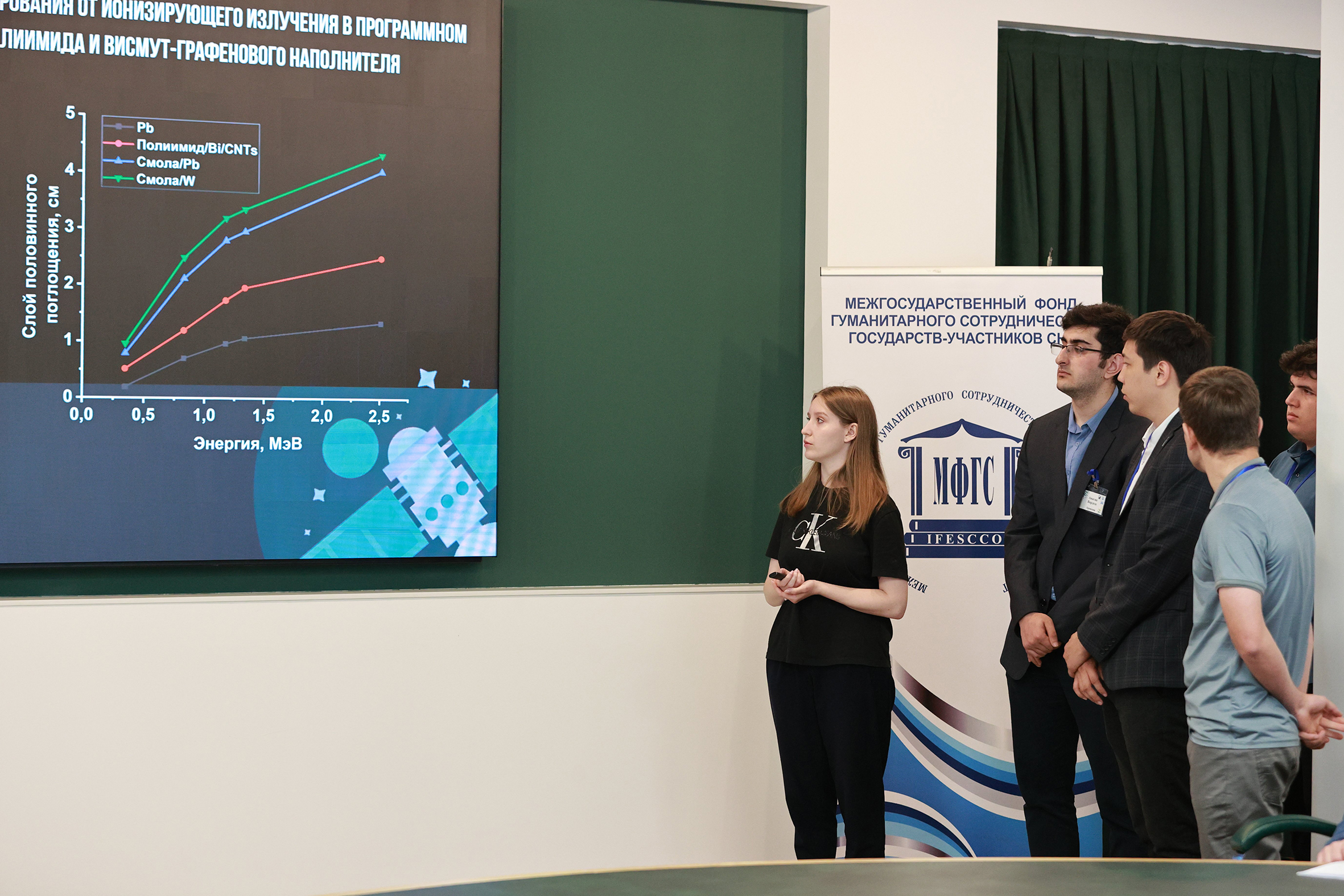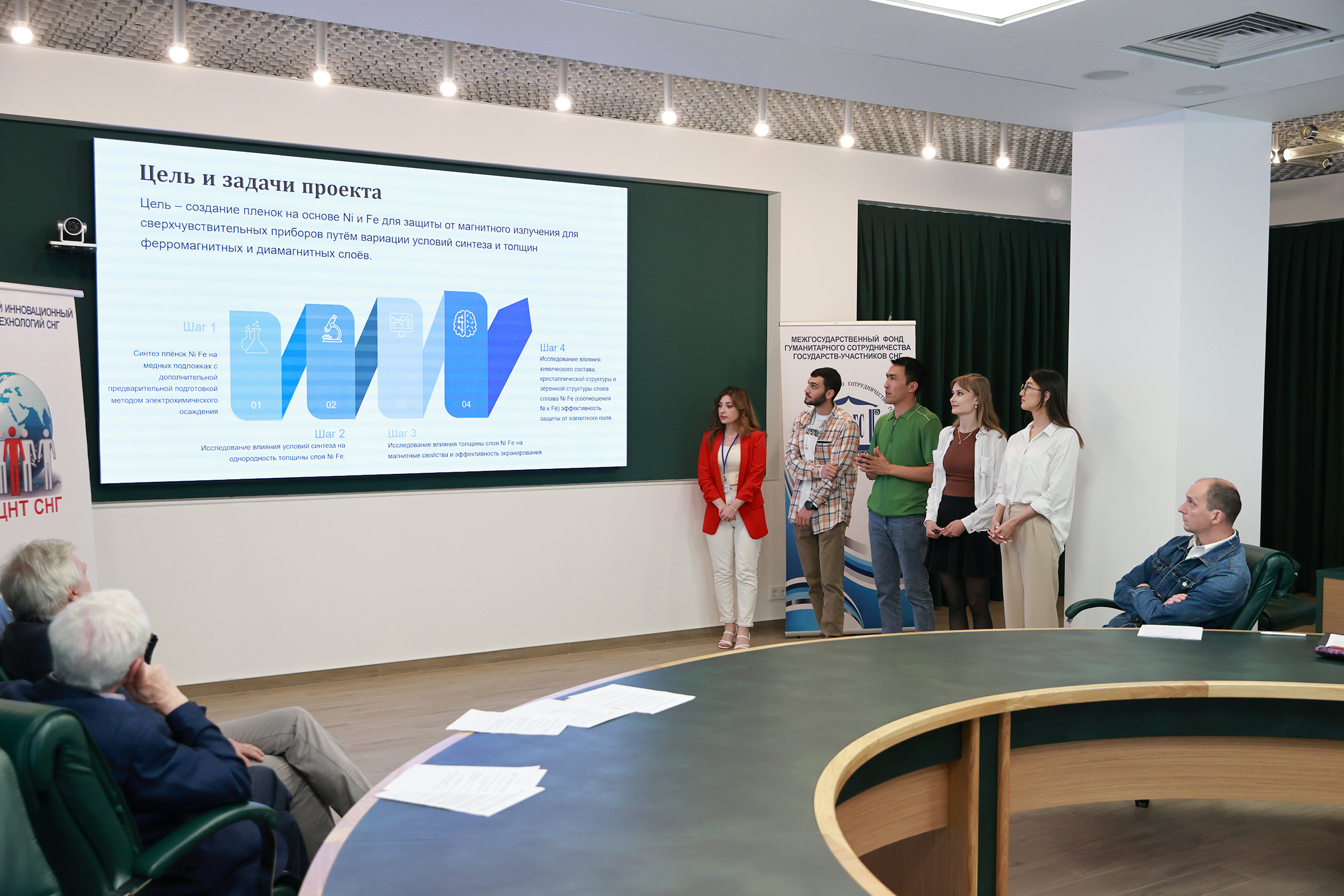16th Internship for Young Scientists from CIS Countries finished
News, 27 June 2023
From 28 May to 27 June, Dubna was hosting the 16th International Internship for Young Scientists from the CIS Countries organized by the International Innovative Nanotechnology Centre of the CIS countries (ININC CIS) with the support of the Intergovernmental Foundation for Educational, Scientific and Cultural Cooperation of the CIS (IFESCCO) and the Joint Institute for Nuclear Research. Researchers, teachers, students, and postgraduates from Azerbaijan, Armenia, Belarus, Kazakhstan, Kyrgyzstan, Russia, Tajikistan, and Uzbekistan participated in the Internship.
The Internship programme was very extensive and included lectures on the JINR history and its major fields of activities delivered by members of the JINR Directorate and representatives of leading departments, excursions to all the laboratories of the Institute and the JINR University Centre, and lectures and consultations with leading JINR scientists. Following the results of the Internship, many participants have managed to establish scientific contacts between their research centres, universities, and JINR laboratories.
In addition, a large block of the programme was devoted to the detailed information about activities of the Special Economic Zone “Dubna” (SEZ), as well as visits to innovative enterprises in SEZ such as Pascal Medical LTD, Aquanova Rus JSC, and Yadro Fab Dubna LLC. Moreover, participants visited Dubna State University and its departments related to digital production.
At the beginning of the Internship, participants received training in team building, after which they were divided into international groups. Each group began to prepare its own scientific or innovative project. On 26 June, the JINR International Conference Hall hosted the defence of these projects and a ceremony of awarding diplomas on the Internship completion. ININC CIS Director, JINR Assistant Director for Development Projects Alexander Ruzaev, FLNR Deputy Scientific Leader Mikhail Itkis, and Head of the Social Infrastructure Management Office, Chairman of the Dubna Council of Deputies Andrey Tamonov took part in the ceremony.
Alexander Ruzaev highlighted, “The main purpose of the Internship is to show the potentials of JINR and Dubna as a platform for international scientific cooperation of young scientists from the CIS countries. No national centre in the CIS has such resources as JINR, so it is very important that young specialists saw and tested these opportunities in action. Along with this, during internships, we always aspire to help young scientists from different countries establish new business contacts with each other, with the JINR youth, learn to work in international teams.”
Participants of the Internship have shared their impressions and experience gained during the event.
Ainagul Khametova, an employee at the Institute of Nuclear Physics (Astana, Kazakhstan), works at the DC-60 Heavy Ion Accelerator created with the participation of employees of the Laboratory of Nuclear Reactions,
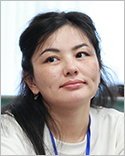 “This Internship opens up great opportunities for young scientists to study and grow scientifically, as well as to expand their professional horizons. Not only have I gained an incredible experience, but I have also met outstanding scientists who shared their knowledge and experience with trainees. I am sure that the Internship at JINR will have a profound impact on my future scientific development.”
“This Internship opens up great opportunities for young scientists to study and grow scientifically, as well as to expand their professional horizons. Not only have I gained an incredible experience, but I have also met outstanding scientists who shared their knowledge and experience with trainees. I am sure that the Internship at JINR will have a profound impact on my future scientific development.”
Mansur Bekmuratov, a teacher’s assistant at the Nukus State Pedagogical Institute named after Azhiniyaz (Uzbekistan), teaches students semiconductor physics, solid state physics, and atomic physics. He learned about the enrolment for the internship from participants of the internships of previous years,
 “The expectations of participating in the internship have been fully met. We have visited laboratories, got an idea of many scientific facilities, saw accelerators and other sources of radiation at JINR. We have established new scientific contacts. We measured samples that I brought with me using a scanning electron microscope at the Laboratory of Radiation Biology. We used the method of Raman spectroscopy at the Laboratory of Neutron Physics. There is already an agreement on further exchange of experience and cooperation. During the Internship, we were working in temporary teams on two joint projects that we have now defended. One of them is related to biodegradable composite materials, the other one with radiation. The main topic of my research is the effect of radiation on the electrophysical properties of semiconductor materials. I will continue working on it. I have made promising plans for myself.”
“The expectations of participating in the internship have been fully met. We have visited laboratories, got an idea of many scientific facilities, saw accelerators and other sources of radiation at JINR. We have established new scientific contacts. We measured samples that I brought with me using a scanning electron microscope at the Laboratory of Radiation Biology. We used the method of Raman spectroscopy at the Laboratory of Neutron Physics. There is already an agreement on further exchange of experience and cooperation. During the Internship, we were working in temporary teams on two joint projects that we have now defended. One of them is related to biodegradable composite materials, the other one with radiation. The main topic of my research is the effect of radiation on the electrophysical properties of semiconductor materials. I will continue working on it. I have made promising plans for myself.”
Vardges Avagyan, a trainee physicist at the Institute for Physical Research of the National Academy of Sciences of Armenia,
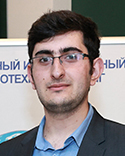 “During the Internship, I have made a lot of discoveries for myself as an engineer. At the end of my master’s degree, I had a choice either to go to science or to engineering. Before the Internship, I thought that I would be engaged in engineering. However, after it, when I saw the Dubna science city, I realised that science was much more interesting. Moreover, science and engineering could be combined. Dubna is a wonderful city that really looks and exists like a science city. I have made many new friends here and new contacts for further cooperation.”
“During the Internship, I have made a lot of discoveries for myself as an engineer. At the end of my master’s degree, I had a choice either to go to science or to engineering. Before the Internship, I thought that I would be engaged in engineering. However, after it, when I saw the Dubna science city, I realised that science was much more interesting. Moreover, science and engineering could be combined. Dubna is a wonderful city that really looks and exists like a science city. I have made many new friends here and new contacts for further cooperation.”
